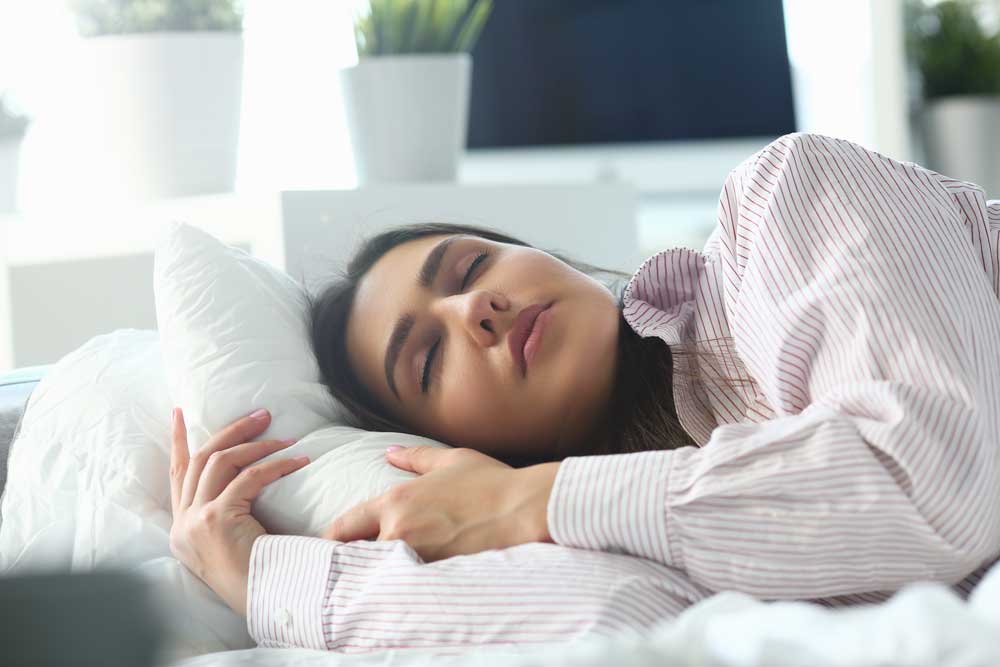Migraine treatment and prevention have been demonstrated by medicine. But the narrative is not only about medicine. It's also critical to look after your health and know how to handle migraine pain when it occurs. The same lifestyle decisions that support overall good health can also help you have fewer migraines and less pain from them. The most successful strategy to manage migraines is frequently to combine medication with lifestyle changes and behavioural therapies.
Migraine is a genetic neurologic disease that affects people of all ages and can be influenced or triggered by environmental factors. But migraines are not caused by triggers. For instance, although stress can make a migraine worse, it does not cause them. Primary care physicians can provide lifestyle counselling based on the acronym SEEDS (sleep, exercise, eat, journal, and stress) to help patients lessen the chance of having a migraine attack, the intensity of their symptoms, or both.

A Calm Environment
When you begin to feel or get the first sign of a migraine, step away from what you’re doing and take a break.
• Switch off the lights: Migraine discomfort may worsen in response to light and music. Unwind in a peaceful, dark room and if possible try falling asleep.
• Consider temperature therapy: Put compresses on your head or neck, either hot or cold. The numbing impact of ice packs may lessen discomfort. Tensed muscles can be eased using hot packs and heating pads. Warm baths or showers could have a comparable impact.
• Sip on a caffeinated beverage: Caffeine by itself, in little doses, helps reduce migraine pain in its early stages. Additionally, caffeine may strengthen the analgesic and acetaminophen (Tylenol, etc.) effects on pain. But exercise caution, excessive caffeine consumption can lead to withdrawal headaches associated. Additionally, consuming caffeine too late in the day may disrupt sleep, which may worsen migraines.
Fall Asleep
Your ability to fall asleep or stay asleep at night may be hindered by migraines. Inadequate sleep is often the cause of migraines. Here are some pointers to get sound sleep.
• Decide on regular sleeping hours: Every day, including on the weekends, get up and go to bed at the same time. If you do take a daytime nap, make sure it's brief, if- your naps last more than 20 to 30 minutes then your sleep at night may be hampered.
• Unwind: Better sleep can be achieved by doing anything that relaxes you, such as reading a favourite book, taking a warm bath, or listening to relaxing music. Also be mindful of what you consume before going to bed. Sleep disturbances can be caused by strenuous exercise, large meals, coffee, nicotine, and alcohol.
• Avoid distractions before sleep: Keep your bedroom reserved for intimacy and rest. Avoid watching TV or bringing work to bed.
• Medications: Sleep disturbances can be caused by medications that contain caffeine or stimulants found in migraine medications.

Choose What You Consume Wisely
Your migraines may be influenced by the food you eat.
• Maintain consistency - eat around the same time daily.
• Never miss a meal, migraine risk rises with fasting.
• Maintain a food diary - it can be helpful to identify possible dietary triggers by keeping a journal of the things you eat and the times you get migraines.
• Steer clear of foods that cause migraines - if you think a certain meal is causing a migraine, cut it out of your diet and observe the effects. Chocolate, coffee, whisky, and aged cheese are a few examples of these foods.

Exercise
Your body releases particular chemicals when you exercise, which prevent your brain from receiving pain signals. These substances also aid in the reduction of depression and anxiety, two states that can exacerbate migraines. Chronic headaches are another complication of obesity. Sustaining a healthy weight through diet and exercise can help manage migraines even more. Cycling, swimming, and walking are few of the activities that people opt for to keep oneself fit. Just keep in mind that intense exercise can cause migraines, so start out slowly.

Manage Stress
Migraines and stress frequently coexist. Although daily stress is unavoidable, it can be managed better with the following steps.
• Make life simpler: Avoid attempting to cram more tasks or activities into your day.
• Make good use of time: Make sure to regularly maintain a to-do list at home and at work. Give what you can to others, and break down bigger tasks into smaller, more doable tasks.
• Rest up: A brisk walk or stretching will help you reenergise for the task at hand if you're feeling overwhelmed.
• Relax: Make time each day to spend at least fifteen minutes doing something you enjoy. It might be engaging in a pastime, getting coffee with a friend, or playing a game. Engaging in activities you love is a healthy approach to reduce stress.
• Slow breathing: You can relax by using your diaphragm to breathe deeply for at least ten minutes each day.

Maintain A Migraine Diary
You can use a diary to track down the causes of your migraines. Keep track of your activities, the time your migraines began, how long they lasted, and whether anything helped to relieve them. Up until recently, the best advice was to stay away from things that provoke migraines. However, recent studies indicate that doing so can actually make you more sensitive to such triggers.
A better strategy could be to progressively expose yourself to headache causes and develop coping mechanisms through behavioural management. These could include stress management techniques, relaxation training, and recognising and confronting negative ideas.
Migraines can make daily life challenging. However, adopting a healthy lifestyle can be beneficial. Consider going to counselling or joining a support group if you're experiencing anxiety or depression.